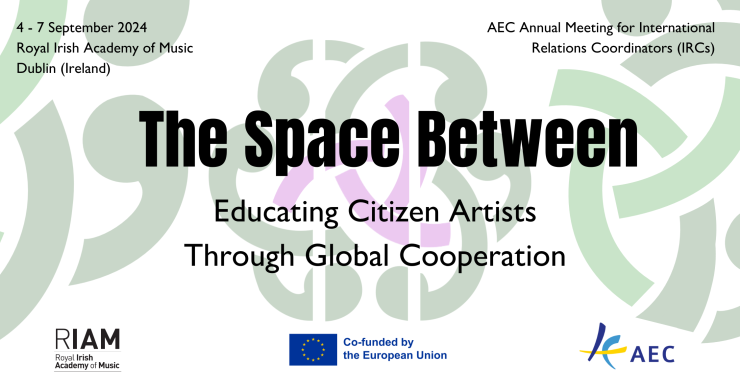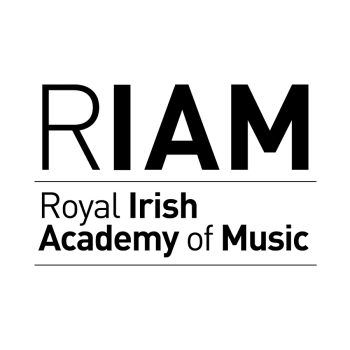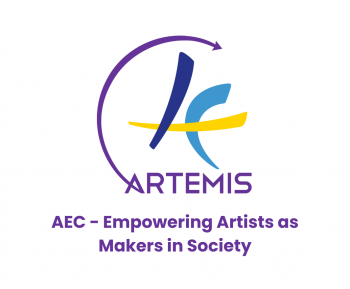Wednesday 4 September
Registration opens (with welcome coffee)
Workshop on the new EASY Mobility Online System
This hands on, technical workshop is a must for IRC dealing daily with the management of mobilities through the new EASY Mobility Online System. Knowledge of the two parts of the user manual are compulsory to attend the workshop. Basic functions on the system, settings, tips and tricks, logic, process, common mistakes and changes for next years will be addressed. The workshop will be given by Sara Primiterra, EASY Project Manager, together with the EASY Task Force. Laura and Ivan from SoP will be there to answer to technical questions and solve individual issues, if any.
This workshop is meant for internal institutions only, but externals are welcome to come as observers.
Please register to the workshop by clicking on the relevant box of the registration form. The workshop is free of charge.
Users are welcome to give suggestions on the workshop via the survey sent to all internal users in June.
Structure:
14:00 Registration
14:30 – 16:00 Presentations and Q&A
16:00 – 16:30 Coffee break
16:30 – 18:00 Presentations and Q&A
18:00 End of the workshop, free evening
Thursday 5 September
Registration for pre-conference workshop participants (with welcome coffee)
Pre-conference Workshops
Moderated by Oana Balan-Budoiu, National Academy of Music in Cluj Napoca, IRC wg member
The 2024 survey on BIPs launched by the IRC working group showed how IRCs of higher music education institutions share common challenges when it comes to the implementation of such programmes. In fact, many of the issues listed by AEC members are not mentioned in the official EU documentation: the need to come up with sectorial guidelines – defined by those who already experienced challenges and opportuties as leaders or partners – has become evident. By sharing insights and working together, we, as a community, can overcome common obstacles and create a successful model for implementation.
During this 3-hours workshop, experienced and less experienced IRCs will explore together key topics such as funding strategies, selecting relevant BIP subjects, organizing networking activities, utilizing effective tech tools, creating a comprehensive event calendar, and finding partners.
Experienced IRCs from Rome (Carla Conti), Hamburg (Christiane Brück), Ghent (Frauke Velghe), The Hague (Elsa Ferreira) and Helsinki ( Leena Veijonsuo and others TBC) will contribute with their experience to facilitate group discussion and to develop guidelines that will enhance the effectiveness of BIPs in conservatoires.
Workshop Agenda:
- Introduction – 15 minutes
- Introduction of the Facilitators
- Objectives of the Session
- General Presentation of the BIP Rules (for those who are not familiar)
- Structure of the Workshop
- Session 1 – 45 minutes
- Participants will be split into a maximum of 7 tables (approximately 10 participants per table)
- Each table will have 1 facilitator who will lead the discussion
- During this session, participants are asked to share their challenges regarding the following topics:
- Funding and Financial Management
- Identify and discuss challenges such as accommodation issues
- Develop and agree upon a cost-sharing model among institutions
- Explore external sources of funding, particularly for student accommodations
- Negotiate with local businesses for discounts on accommodations and meals
- Curriculum and Subject Selection
- Identify appropriate subjects for a BIP
- Ensure subjects align with the needs and interests of the students and institutions involved
- Additional Enriching Activities
- Propose activities that could improve the effectiveness and enrich the experience of the BIP
- Suggest cultural, educational, and social activities that enhance the overall program
- Feedback and Continuous Improvement
- Establish a mechanism to collect feedback after each BIP to continuously improve the program
- Discuss methods for gathering, analyzing, and acting on feedback from participants and partners
- Technological Tools and Communication
- Discuss and select the best technological tools and platforms to ensure communication among partners
- Explore tools for project management, communication, and collaboration
- Planning and Networking
- Propose networking activities at the onset of BIPs to foster introductions among participants, build team cohesion, and enhance interpersonal interactions
- Dedicated Staff and Workload Distribution (if needed)
- Encourage each partner institution to nominate a dedicated staff member for BIP implementation
- Discuss how this helps distribute the workload more evenly across participating institutions
- Funding and Financial Management
- The results will be written on flipchart paper
- Intermediate “Plenary Session” – approx. 35 minutes
- Groups will be asked to present their outputs briefly (5 minutes per table)
Coffee Break – 15 minutes
- Session 2 – 40-60 minutes
- World Café Method (progressive round-table conversation, at the end of each round, participants move to a new table)
- 6/7 tables (depending on the final number of attendees), each focusing on one specific area from Session 1’s discussions (this time on finding solutions to the listed challenges)
- Participants are asked to choose a table where they think they can provide solutions
- Every 10 minutes, a bell will ring, signaling that participants must choose another table
- Each table will be hosted by a facilitator who will continuously collect feedback from the participants
- Final Session – Plenary
- Facilitators will provide feedback and open discussions for any additional comments
Presentation and moderation by Gretchen Amussen, PRIhME Project
What impact do power relations and hierarchies of power have on IRCs, on international students or students and/or teachers participating in exchanges? How might understanding power relations and hierarchies of power empower us to be better supported and to better support the international student experience? What tools might we use to address the challenges we face in this regard? We all have examples of international students receiving less attention or opportunities, or of others suffering from a lack of language skills… and in our own professional hierarchies, we may feel our voices are not valued as they should be.
This highly interactive session, focused on the specific nature of international relations and inspired by the recently completed PRIhME (Power Relations in Higher Music Education) Project, seeks to help participants recognize and understand different types of power to better cope with challenges as they arise. We will explore the specific power-related challenges and imbalances faced within international relations offices. Ultimately, the session aims for each participant to define several concrete actions to improve power relations in his/her international relations environment.
Registration opens (with welcome coffee)
Session for first time delegates
Presentation about the AEC and ice breaker exercise
moderated by Frauke Velghe and Dimitrios Marinos, IRC working group
The Introductory Session for First-Time Delegates serves as an essential orientation for new participants. This session focuses on the general structure of the AEC, a coalition representing Higher Music Education Institutions (HMEIs) in Europe and beyond. It highlights AEC’s mission and vision, its organisational structure, upcoming events, and major projects. The session underscores the importance of networking, exchanging information, and developing partnerships among member institutions, facilitating effective communication and sharing of best practices within the community. The entire session will be delivered in a free and interactive setting, including an ice-breaker exercise.
Opening Session
- Music performance
- Welcome words by
- Deborah Kelleher, Director of RIAM and AEC President
- Aoileann Ní Bhroin, Irish Erasmus National Agency
- Jan-Gerd Krüger, IRC Working Group Chair
- Finn Schumacker, AEC Chief Executive
AEC Talk 1 - What is the role of higher music education in developing citizen artists? - Lynsey Callaghan (RIAM)
moderated by Deborah Kelleher
How can internationalisation in higher music education contribute to developing citizen artists? Among many reasons, studying abroad stands out for its potential to cultivate the competencies of global citizenship. For students in higher music education, these international experiences can profoundly shape their global consciousness. By immersing themselves in new cultures and realities, students are afforded an opportunity to inhabit a liminal space where new possibilities for their artistic practice can emerge. Living on the precipice of something new, they are poised to discover innovative ways to express their creativity, connect with diverse audiences, and enrich their communities.This talk explores how international experiences can deepen artists’ understanding of their societal contributions. Reflecting on her own international education opportunities, Lynsey will discuss how these formative experiences have shaped both her vision for social change through youth choral music education and her role as Head of Programmes, Research and Academics at the Royal Irish Academy of Music.
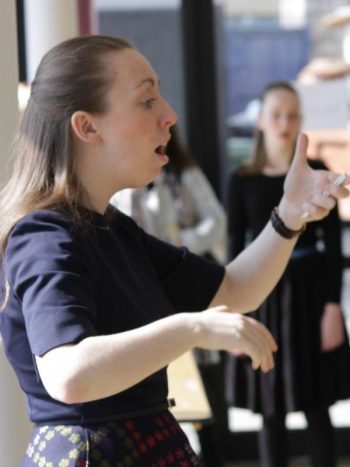
Lynsey Callaghan
Head of Programmes, Research & Academics
PhD, MMusPerf, BMusEd
Lynsey Callaghan was appointed Head of Research and Programmes in December 2020.
Lynsey combines performance experience, pedagogical training, and academic research to facilitate inclusion, equitability, and a sense of belonging in a range of musical contexts. Following a degree in music education (Trinity College Dublin and DIT Conservatory of Music) and a master’s degree in performance (Royal Irish Academy of Music), Lynsey undertook an interdisciplinary PhD in Trinity College Dublin. Her output—academic scholarship and practice-related research—is thoroughly interdisciplinary and wide-ranging. She draws on a diversity of investigative methods that are associated with a range of disciplines, including medieval musicology, the history of music theory, manuscript studies, the history of education, mobility studies, post-translation studies, gender studies, and music education.
In 2020, Lynsey was chosen to take part in the Global Leaders Program, joining a cohort of rising change-makers in music who are committed to social justice through music. The international programme has furthered her commitment to and understanding of social entrepreneurship and justice, cultural agency, community development and teaching artistry. Lynsey’s goal is to lead RIAM in contributing to a systemic change in music education in Ireland so that more people are included in and through music. One of her most substantial contributions to date is Dublin Youth Choir, which Lynsey founded in 2017 with the aim of providing a structure of incremental and inclusive choral music education for the young singers of Dublin and the surrounding areas. Lynsey is also the Artistic Director of the Belfast Philharmonic Youth and Chamber Choirs and the Cross Border Youth Choir initiative. These programmes all aim to transform music education across the island.
Lynsey will develop the RIAM’s curricula to make space for new voices and new ideas. She will work to shape RIAM’s post-Covid response to substantial changes in music-performance education, the music profession, and society at large, and she is also looking forward to supporting RIAM’s students as they develop their individual voices and create their own contributions to society through music.
Networking with refreshments
Parallel Sessions I
with Payam Gul Susanni (Vietmus Project), Kirsty McCahon (Australia), Stephanie Tan (student from Singapore), moderated by Wei Boon Tan
Music students as developing citizen artists are encouraged to engage with the world through their art and service by fostering exchange, bridging cultural gaps and enriching communities through diverse artistic experiences. In this session, we discuss the importance for students to have an experience of living in a foreign country and share ways we can seek support to facilitate global exchanges. The session also shares an update of “Vietmus”, a two-year project funded by the European Union involving 10 universities in Europe and Vietnam which aims to promote digital transformation and to create a new digital capacity in teaching and performing in the Vietnamese Higher Music Education landscape.
By Kim Fallen Bailey, Jessica Harris and Maria Prodromou (IncluMusic), Aine O’Sullivan (RIAM) and Margit Dirnberger (Erasmus+ Higher Education Agency Austria)
In the pursuit of educational equity and cultural exchange, the Erasmus+ programme strives to offer transformative experiences to all students. However, students with Special Education Needs (SEN) often encounter unique challenges that can hinder their participation in these opportunities. The session aims to identify these challenges and facilitate discussion to explore strategies for a more inclusive Erasmus+ experience for all students.
Participants will first explore the specific barriers faced by students with SEN in the context of Erasmus+ mobility (such as wheelchair access, visual and hearing impairments, and neurodivergent needs). They will share their experiences and insights about the common obstacles at their institutions, both for outgoing and incoming students. This collaborative discussion will help in understanding the real needs and concerns that must be addressed. Participants will also learn about existing resources and best practices, including mindfulness techniques, one of the modules included in the training course developed within the scope of the IncluMusic project (2022-2025), which is gathering a full range of materials and considerations that can enhance the support provided to students with SEN.
Moreover, a slot will be dedicated to highlight personal stories and practical solutions to the challenges faced by students with SEN. Participants will engage in table discussions and will explore how to implement inclusive strategies, which will foster a rich exchange of ideas and potential solutions that have been tried and tested in real-world scenarios. By the end of this session, participants will have a deeper understanding of the inclusion challenges, and will gain insights into the specific needs and barriers faced by these students which could apply to their own institutions.
Anna Lardi (Cellissimo Festival) and the AEC Goes Green group, moderated by Dimitrios Marinos
Musicians, as citizen artists, are encouraged to use their talents to engage with and positively impact their communities. By actively addressing the climate crisis, they can play a pivotal role in mitigating environmental threats through meaningful actions. These efforts contribute to a greener transition in the music sector and promote a more sustainable and resilient society.
This session will explore sustainable music practices and how environmental responsibility can be integrated into both performance and education. It emphasizes the importance of aligning higher music education institutions with the EU Green Deal’s broader objectives and its guidelines for a green transition.
Building on prior work mapping environmentally friendly practices, the AEC Goes Green Working Group of the ARTEMIS project has developed specific “green” recommendations for the music education sector. The presentation will showcase these recommendations, offering practical steps for reducing institutions’ carbon footprints, promoting sustainable travel, and organizing eco-friendly events. Additionally, the presentation will address the challenges faced in implementing sustainable practices.
An inspirational contribution will be provided by Anna Lardi, CEO of Music for Galway and creator of the Songs of Travel concept, who will share her experiences in spotlighting environmental sustainability in music events.
One artist’s conviction around travel, and the example he set, planted a first seed out of which the Creative Europe Cooperation Project Songs of Travel grew. This project is not only about being sustainable, but about using the presentation of music to bring about behavioural change in all stakeholders involved with regard to sustainability. Music for Galway made this an integral strand of the first in-person edition of Cellissimo – a nine day cello festival on the edge of Europe.
a session on power relations and hierarchies of power in international offices by Gretchen Amussen, PRIhME Project
This session will introduce the concepts of power relations and hierarchies of power as defined in the recently completed PRIhME Project, focusing on their impact on IRCs, international students and/or teachers participating in exchanges. We will explore specific power related challenges and imbalances faced in international offices and suggest how understanding these dynamics can in turn empower IRCs and better support the international student/teacher experience.
Parallel Sessions II - REPEATED
Payam Gul Susanni (Vietmus Project), Kirsty McCahon (Australia), Stephanie Tan (student from Singapore), moderated by Wei Boon Tan
Music students as developing citizen artists are encouraged to engage with the world through their art and service by fostering exchange, bridging cultural gaps and enriching communities through diverse artistic experiences. In this session, we discuss the importance for students to have an experience of living in a foreign country and share ways we can seek support to facilitate global exchanges. The session also shares an update of “Vietmus”, a two-year project funded by the European Union involving 10 universities in Europe and Vietnam which aims to promote digital transformation and to create a new digital capacity in teaching and performing in the Vietnamese Higher Music Education landscape.
By Kim Fallen Bailey, Jessica Harris and Maria Prodromou (IncluMusic), Aine O’Sullivan (RIAM) and Margit Dirnberger (Erasmus+ Higher Education Agency Austria)
In the pursuit of educational equity and cultural exchange, the Erasmus+ programme strives to offer transformative experiences to all students. However, students with Special Education Needs (SEN) often encounter unique challenges that can hinder their participation in these opportunities. The session aims to identify these challenges and facilitate discussion to explore strategies for a more inclusive Erasmus+ experience for all students.
Participants will first explore the specific barriers faced by students with SEN in the context of Erasmus+ mobility (such as wheelchair access, visual and hearing impairments, and neurodivergent needs). They will share their experiences and insights about the common obstacles at their institutions, both for outgoing and incoming students. This collaborative discussion will help in understanding the real needs and concerns that must be addressed. Participants will also learn about existing resources and best practices, including mindfulness techniques, one of the modules included in the training course developed within the scope of the IncluMusic project (2022-2025), which is gathering a full range of materials and considerations that can enhance the support provided to students with SEN.
Moreover, a slot will be dedicated to highlight personal stories and practical solutions to the challenges faced by students with SEN. Participants will engage in table discussions and will explore how to implement inclusive strategies, which will foster a rich exchange of ideas and potential solutions that have been tried and tested in real-world scenarios. By the end of this session, participants will have a deeper understanding of the inclusion challenges, and will gain insights into the specific needs and barriers faced by these students which could apply to their own institutions.
Anna Lardi (Cellissimo Festival) and the AEC Goes Green group, moderated by Dimitrios Marinos
Musicians, as citizen artists, are encouraged to use their talents to engage with and positively impact their communities. By actively addressing the climate crisis, they can play a pivotal role in mitigating environmental threats through meaningful actions. These efforts contribute to a greener transition in the music sector and promote a more sustainable and resilient society.
This session will explore sustainable music practices and how environmental responsibility can be integrated into both performance and education. It emphasizes the importance of aligning higher music education institutions with the EU Green Deal’s broader objectives and its guidelines for a green transition.
Building on prior work mapping environmentally friendly practices, the AEC Goes Green Working Group of the ARTEMIS project has developed specific “green” recommendations for the music education sector. The presentation will showcase these recommendations, offering practical steps for reducing institutions’ carbon footprints, promoting sustainable travel, and organizing eco-friendly events. Additionally, the presentation will address the challenges faced in implementing sustainable practices.
An inspirational contribution will be provided by Anna Lardi, CEO of Music for Galway and creator of the Songs of Travel concept, who will share her experiences in spotlighting environmental sustainability in music events.
One artist’s conviction around travel, and the example he set, planted a first seed out of which the Creative Europe Cooperation Project Songs of Travel grew. This project is not only about being sustainable, but about using the presentation of music to bring about behavioural change in all stakeholders involved with regard to sustainability. Music for Galway made this an integral strand of the first in-person edition of Cellissimo – a nine day cello festival on the edge of Europe.
a session on power relations and hierarchies of power in international offices by Gretchen Amussen, PRIhME Project
This session will introduce the concepts of power relations and hierarchies of power as defined in the recently completed PRIhME Project, focusing on their impact on IRCs, international students and/or teachers participating in exchanges. We will explore specific power related challenges and imbalances faced in international offices and suggest how understanding these dynamics can in turn empower IRCs and better support the international student/teacher experience.
Welcome reception
Friday 6 September
Welcome coffee and registration continues
AEC Talk 2 - Understanding Student Perspective: stories from international students at European HMEIs
by Jing Yi Yang, Casey Trowel, Olesia Borsuk and Andrés Vaccaro, – RIAM Dublin, Stephanie Tan – Prince Claus Conservatoire
Moderated by Monica Vejgaard, EPASA President and Iveri Kekenadze Gustafsson, EPASA Board Member
International students encounter numerous challenges throughout their academic journey. From navigating a complex array of bureaucratic processes, including obtaining essential documents at both the beginning and end of their studies, to adapting to a new cultural and social context, these hurdles can create significant stress and negatively impact their overall experience.
This session delves into the unique experiences of international students at European Higher Music Education Institutions (HMEIs). By sharing their personal stories and insights, we aim to uncover the specific challenges they face and identify strategies to enhance their overall experience.
Together, we will focus on the possibilities for change and how we can help international students feel more welcomed and valued, ultimately enriching the diverse tapestry of our academic communities. Join us as we dive into how to create a more inclusive and supportive environment for all international students, ensuring they can thrive both artistically and personally.
Check out the panellists here.
Presentation on the New EASY Mobility Online System
main updates on the project by Sara Primiterra, EASY Project Manager
Information Forum
short presentations on international projects and initiatives moderated by Sara Primiterra
Group picture
Information Market
Lunch
Discussion groups on practical issues - questions and solutions on mobility
moderated by Frauke Velghe and Dimitrios Marinos
This session is designed to help IRCs find partners for projects or mobilities, giving them also an insight in establishing and managing project partnerships. Together we will explore methods for finding partners and best practices for collaboration, as well as discuss administrative essentials such as creating and negotiating partnership agreements. Interactive elements include open discussions to tackle challenges and brainstorm solutions for finding project partners, and a case study analysis of a successful Creative Europe project (Self-Curating Musician). During this session IRCs will be empowered with the skills and confidence to create meaningful and sustainable project partnerships, facilitating the search for future partners.
by Elke de Roos, The Hague, and Virginia Kerr, RIAM Dublin
This guided discussion on the wellbeing of international students will focus on the challenges they face while studying abroad. We will talk about the cultural differences, languages barriers, homesickness, (social) isolation and other obstacles. Most importantly, we will discuss what supports and resources are available to international students to help them adapt and thrive in their new environment. Finally, we will exchange ideas on how higher educational institutions and communities can better support their international students and improve their wellbeing.
Speakers and affiliations:Virginia KerrProfessor of Voice (Royal Irish Academy of Music)MSc. Integrative and Humanistic PsychotherapyPerformance Psychology Module Co-ordinator and Lecturer (RIAM)Associate of Guildhall School of Music and DramaElke de RoosStudent counsellor Royal Conservatoire The Hague 2019 -presentStudent Counsellor Amsterdam University of Applied Sciences 2010- 2019Master’s degree in American Studies.Professional Coach (Acceptance and Commitment Therapy – ACT).
Format:Introduction and presentations by speakers.Group members introduce themselvesQuestions using mentimeterBreak into pairs to discussPresent to large group for discussionTo close, what might each person like to take away with them to use in their university
by Sara Belfiore, CNSMD Paris, Institutional Alliance Manager IN.TUNE
Moderated by Melissa Mercadal and Oana Balan- Budoiu
This session will address the European Student Card Initiative (ESCI) and its transformative impact on Higher Music Education Institutions (HMEIs). The ESCI aims to streamline student mobility and access to services across Europe through a unified digital identity, enhancing the overall student experience.
We will explore the multifaceted process of implementing the ESCI in HMEIs, addressing technical, administrative, and financial challenges. Key topics will include the impact of the implementation on administrative services, advantages and disadvantages of the initiative. A special focus will be placed on the Paris Conservatoire’s experience, detailing the strategies and challenges in adopting the European Student Card. This case study will provide valuable insights and good practices for other institutions.
The session format will start with a presentation, followed by a Q&A segment to enable attendees to ask questions, share their experiences, and discuss potential solutions for their institutions.
moderated by Iveri Kekenadze Gustaffson
This discussion group will engage into a discussion on challenges and opportunities of Erasmus+ International Credit Mobility (ICM) KA7171 with third countries. Both newcomers and experienced institutions to share their insights and experiences, best practices, and specific concerns such as confusion over top-ups and approaches to National Agencies in these cases.Finally, the group will brainstormo on how the Association of European Conservatories (AEC) can support efforts to enhance cooperation between programme/associated and non-associated country Higher Music Education Institutions (HMEIs). This session is an excellent opportunity to learn from peers, share successful strategies, and seek advice on overcoming common hurdles in ICM projects.
Presentation by Maria Salzano, Italian Erasmus+ National Agency INDIRE, moderated by Jan-Gerd Krüger
The Erasmus+ programme offers numerous opportunities to assess students’ experience and compare the differences between home and host institutions. The Participants’ Report analysis can help the institution in monitoring quality and impact of mobilities. Through the study of the various Participant Reports’ sections an HMEI could apply the necessary changes to the management of mobilities. You can get to know how inclusive was your strategy, how green were your mobilities, which were the motivations, some best practices, which were the outcomes of mobilities as for example the improvement of languages skills, how important was the traineeship for improving students’ skills and if they have received some benefits during the mobility from the enterprise. But before, we need to prepare the students on the Survey and on the recognition process.
In this discussion group, we aim at sharing best practices on leveraging these evaluations to enhance the educational experience at your institution and improve the organization of exchange programs within your department. The debate starts from the Italian surveys analysis to stimulate reflections and the brainstorming. The discussion will be kicked off by a presentation by the Italian Erasmus+ National Agency INDIRE
by Sara Primiterra, AEC and Jose Luis Fernandez, Conservatorio Superior de Música de Vigo (Spain)
After a short demostration on how to use an online multisignature tool that can facilitate the digital signature of documents concerning mobilities such as staff trainings, the group will focus on the use of EASY MO for externals: the workflow will be explained and the improvements and changes for externals for the new academic year will be shown
Networking Activity
The Viking Splash (participants split in 2 shifts, 16:00 and 17:30, shift assigned to participants, see badge )
followed or preceeded by a free tour of the National Gallery
THE VIKING SPLASH
Roar your way through Dublin City in a unique Land and Water experience provided by one of Ireland’s most unique sightseeing experiences.
Let Viking Splash Tours take you around Dublin on one of our WW2 amphibious DUKWs. The guides provide a fun, informative and unforgettable experience for all ages and groups taking in our cathedrals, Georgian Dublin and much more before splashing into the Grand Canal basin for a short cruise by the iconic U2 studios.
Voted as one of Dublin’s best tours, this is an experience IRCs won’t want to miss!
Subscribe for this activity in the Registration Form. The cost of this activity is included in the registration fee but please note that there is a limited number of spots available.
Subscriptions for this activity will be closed on 14th August at 12:00 CET.
Concert by the Erasmus Orchestra
The Erasmus Orchestra is the first and unique musical ensemble made up of students of European Conservatoires and Music institutes that participated or are taking part in an Erasmus international mobility experience.
The Erasmus Orchestra was created in 2017 to celebrate the 30th anniversary of the Erasmus Programme, under the initiative of the Erasmus+ Italian National Agency INDIRE. The Erasmus Orchestra holds a symbolic meaning and aims to spread the values of the “Erasmus Generation” – open, dynamic, and supportive – and those of Europe, utilizing music as a metaphor for integration, encounter, and the development of skills beyond any linguistic, geographical, or cultural barriers.
The Orchestra also aims to promote the numerous training and mobility opportunities offered by Erasmus+ for students in the sector of Higher Education for Art, Music and Dance.
The initiative also intends to contribute to enhancing the talents and excellence of European Conservatories and Music institutes by fostering collaborations and partnerships that provide internationalization opportunities and professional experiences for young musicians.
Since its debut in 2017 at the Festival of Europe in Florence, the performances of the Erasmus Orchestra have obtained great success of audience and interest from media and institutions, beyond national level. This has led the INDIRE’s Erasmus+ Italian National Agency to invest further in the future of the project.
In 2023, the project expanded to include students from Conservatoires across all Erasmus+ countries, with over 220 students from 22 countries and 60 Conservatoires involved in the project. For this new development, the Agency started an international collaboration with the European Association of Conservatoires – AEC.
The Orchestra playing at the IRC Meeting 2024 will be composed of over 50 students from RIAM Dublin and various conservatories in Erasmus+ countries and will perform classical pieces by Beethoven, Donizetti, Puccini, Fauré, and Verdi.
Info on the Erasmus Orchestra: https://www.erasmusplus.it/iniziative/erasmus-orchestra-en/
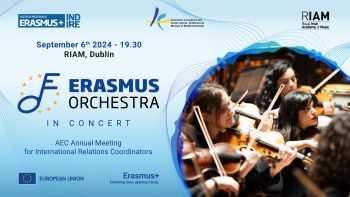
Saturday 7 September
AEC Talk 3 - How Classical Musicians Can Engage Their Live Audiences: Learning From Others Who Do It Better! by John Sloboda (UK)
moderated by Deborah Kelleher
Attendance at live classical concerts in many parts of the world has steadily declined over the last 40 years, and the decline is most marked among younger people. A 10-year research project “Understanding Audiences” led from Guildhall School of Music & Drama has provided new understandings of what attracts (or deters) audiences from engagement in live classical concerts. A conceptual framework has been developed in which live events can be evaluated on four key dimensions that affect audience engagement. In general, classical music fares worse on these dimensions than other art forms, including popular music and jazz, theatre, and galleries. The project explored and evaluated a range of practical strategies for audience engagement, including introducing improvisatory elements into concert formats, obtaining performer-directed feedback from audiences, and involving audiences more in the process of creation, rather than just as witnesses of a finished product. Given the mutlidisciplinary nature of many conservatoires, the research suggests that classical musicians can benefit from working together with students and staff from other disciplines whose audience-facing strategies can be more flexible.
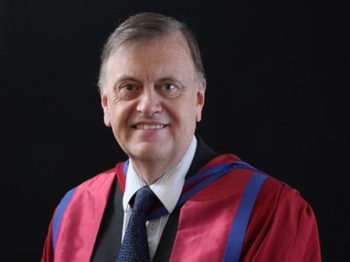
John Sloboda is Emeritus Professor at the Guildhall School, where he was founder of its Institute for Social Impact Research in the Performing Arts. He was Principal Investigator on the AHRC-funded project “Music for Social Impact: Practitioners’ contexts, work, and beliefs” from 2020-2023, and from 2009-2019 led Guildhall School’s “Understanding Audiences” research programme. He is Emeritus Professor at Keele and was a staff member of the School of Psychology at Keele from 1974-2008, where he was Director of its Unit for the Study of Musical Skill and Development, founded in 1991. John is internationally known for his work on the psychology of music. He is a Fellow of the British Psychological Society and has been President of both the Psychology and General Sections of the British Association for the Advancement of Science, as well as President of the European Society for the Cognitive Sciences of Music. He served a 3-year term as founding President of www.simm-platform.eu, an international platform for research into the Social Impact of Making Music. He was the recipient of the 1998 British Psychological Society’s Presidents Award for Distinguished Contributions to Psychological Knowledge, and in 2004 he was elected to Fellowship of the British Academy. In 2018, he was awarded an OBE for his services to psychology and music. His books include Handbook of Music and Emotion (co-edited with Patrik Juslin), and Exploring the Musical Mind, both published by Oxford University Press. He continues a close association with Guildhall School, where he is currently co-supervising three doctoral students.
Networking with refreshments
Discussion groups - reflection on the conference and future topics
| A. Whyte Hall – Jan-Gerd
B. Organ Room – Dimitrios C. Lecture Theatre – Frauke D. Early Music Room – Sara E. Irené Sandford – Iveri F. Veronica Dunne – Melissa G. Board Room – Wei Boon
|
Safe Space
moderated by Steven Faber
ARTEMIS in-presence Safe&Brave space
Have you experienced or witnessed discrimination at the IRCs Meeting 2024 and would like to share about it? Or do you experience or witness discrimination or social unsafety at your own institute? Join us at ARTEMIS Safe&Brave space, the participants are encouraged to give feedback about the IRCs Meeting 2024 with a focus on diversity, inclusion, gender equality and non-discrimination matters in a safe, welcoming and supportive environment. The Safe&Brave Space discussions are confidential. Join us at the Safe&Brave Space on Saturday, 7 September at Vernon Studio.
The session will be facilitated by Steven Faber, ArtEZ University of the Arts (Zwolle, The Netherlands) a member of the Gender Equality and Non-discrimination Mainstreaming Task Force (TF3).
The term safe space generally means an accessible place or environment in which a person or group of people can feel confident that they will not be exposed to discrimination, criticism, harassment or any other risk of emotional (or physical) harm, and is ultimately intended to be free of bias, conflict, criticism or potentially threatening actions. From 2023 onwards, in-presence participants at AEC events are welcome to join the ARTEMIS safe space, shaped as a discussion group and share their experience.
Can’t make it to the Safe&Brave Space session but would like to share your experience related to diversity, inclusion, gender equality and non-discrimination matters? Then write an email to moderator@aec-music.eu for an appointment with the Safe&Brave Space facilitator. Think to do so in advance.
In addition, a room will be available as a Quiet room for anyone needing a brief respite from the busy IRC meeting agenda. Whether you need to focus, find some calm, or concentrate, you’re welcome to the tranquil space of the Quiet Room throughout the entire duration of the IRCs meeting 2024.
We care about your mental wellness!
Attention: Latecomers are not allowed to join this session.
Closing Session
– Music Introduction
– News from the Finn Schumacker, AEC Chief Executive
– Announcement of the IRCs Meeting 2025
– Closing Remarks by Riccardo Ceni, AEC Council

